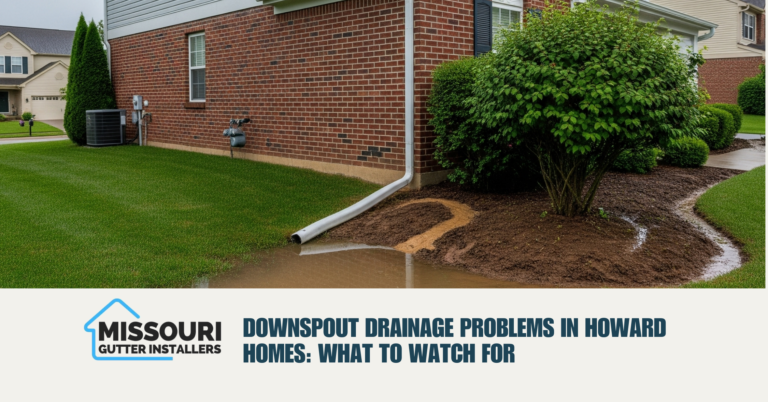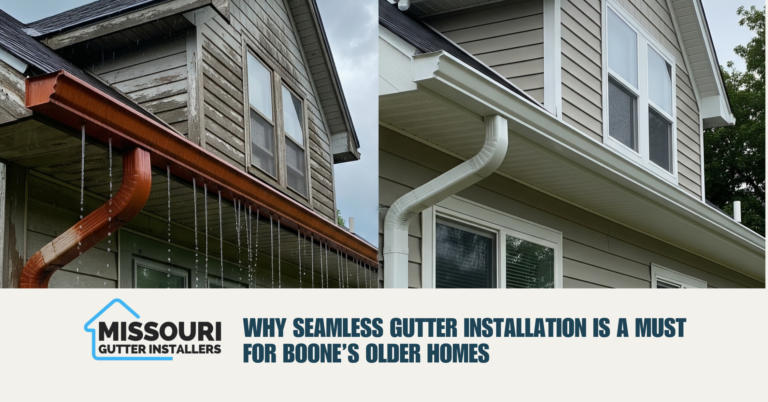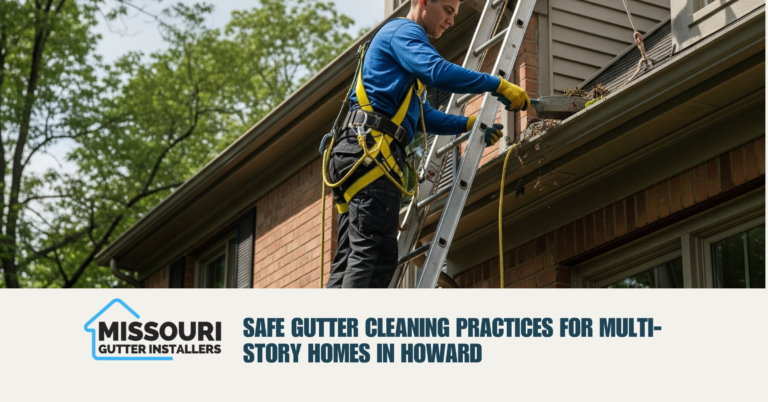Living in Boone means enjoying stunning mountain views and colorful autumn leaves, but those same leaves, pine needles, and heavy rains can spell trouble for your gutters. Choosing the right gutter guard can save your Boone home from costly water damage, foundation issues, and endless cleanings.
Two of the most popular options are micro-mesh gutter guards and reverse curve gutter guards. But which truly suits the unique weather and foliage of Boone, NC? Let’s break down how each type works, compare their pros and cons, and help you decide.
1. How Micro-Mesh Gutter Guards Work
Micro-mesh gutter guards feature a fine stainless-steel or aluminum mesh that sits over your gutters, blocking leaves, pine needles, shingle grit, and even small debris while allowing water to flow through.
They’re especially effective in areas with dense tree cover, making them a popular choice for Boone homeowners surrounded by hardwoods and evergreens.

2. How Reverse Curve Gutter Guards Work
Reverse curve gutter guards (also known as surface tension or helmet-style guards) use the principle of water adhesion. Water follows the curved guard into the gutter, while leaves and debris slide over the edge and fall to the ground.
These guards are often made from solid aluminum or plastic panels shaped to guide rainwater efficiently.
3. Pros of Micro-Mesh Gutter Guards
Excellent debris protection: Blocks even pine needles and shingle grit, common in Boone.
High water flow: Designed to handle heavy mountain rains.
Low visibility: Blends with the roofline for a clean look.
Durable materials: Stainless steel resists rust and corrosion.
Boone’s wet climate and dense tree coverage make micro-mesh an excellent year-round defense.
4. Pros of Reverse Curve Gutter Guards
Self-shedding design: Larger leaves and debris fall off naturally.
Minimal maintenance: Designed to prevent clogs without frequent cleaning.
Strong construction: Often made from solid aluminum or durable plastics.
They can be particularly helpful on homes with steeper roofs where debris slides off more easily.
5. Cons of Micro-Mesh Gutter Guards
Can clog with fine debris: Over time, silt or pollen may stick to the mesh.
Needs occasional cleaning, especially after pollen-heavy Boone springs.
Higher upfront cost: Quality materials and professional installation add to the cost.
6. Cons of Reverse Curve Gutter Guards
Visible from the ground: Curved design may stand out on traditional Boone homes.
Not ideal for pine needles: Needles can slip into the curved opening or get stuck.
Ice dams risk: In Boone’s snowy winters, guards can contribute to ice dam formation if not installed properly.
7. Which Gutter Guard Handles Boone’s Weather Better?
Boone experiences:
- Heavy rainfall in spring and summer
- Frequent autumn leaf fall
- Winter snow and ice
Micro-mesh guards excel in blocking small debris like pine needles and handle large rain volumes efficiently. However, they require occasional light cleaning to prevent pollen or silt buildup.
Reverse curve guards shed large leaves well but may struggle with small needles and Boone’s fine mountain pollen. Ice buildup in winter can also be a concern if water overflows.
8. Maintenance Considerations
- Micro-mesh: Check seasonally for silt or pollen buildup; light brushing or a hose rinse usually keeps them clear.
- Reverse curve: Less frequent cleaning, but watch for debris caught on edges and inspect during icy months.
9. Cost Comparison
- Micro-mesh gutter guards: Typically cost more upfront due to premium materials and installation.
- Reverse curve gutter guards: Often mid-range in cost, but may still require professional fitting.
Think of gutter guards as an investment: reducing the risk of water damage, foundation repairs, and frequent ladder work.
10. Final Recommendation for Boone Homes
If your Boone home is surrounded by pine trees, hardwoods, or has heavy seasonal pollen, micro-mesh gutter guards offer superior protection against fine debris and rain.
For homes with mostly large-leaf trees and steeper roofs, reverse curve guards may work, but be mindful of pine needles and winter ice.
Always choose professional installation to ensure proper fit, slope, and drainage, no matter which guard you choose.
Final Thoughts
Gutter guards protect Boone homes from the damaging effects of water, snow, and heavy leaf fall. Choosing the right style depends on your roof type, nearby trees, and Boone’s unique climate.
Talk to a local gutter specialist to assess your home’s needs and invest in long-term peace of mind. Contact us today!






